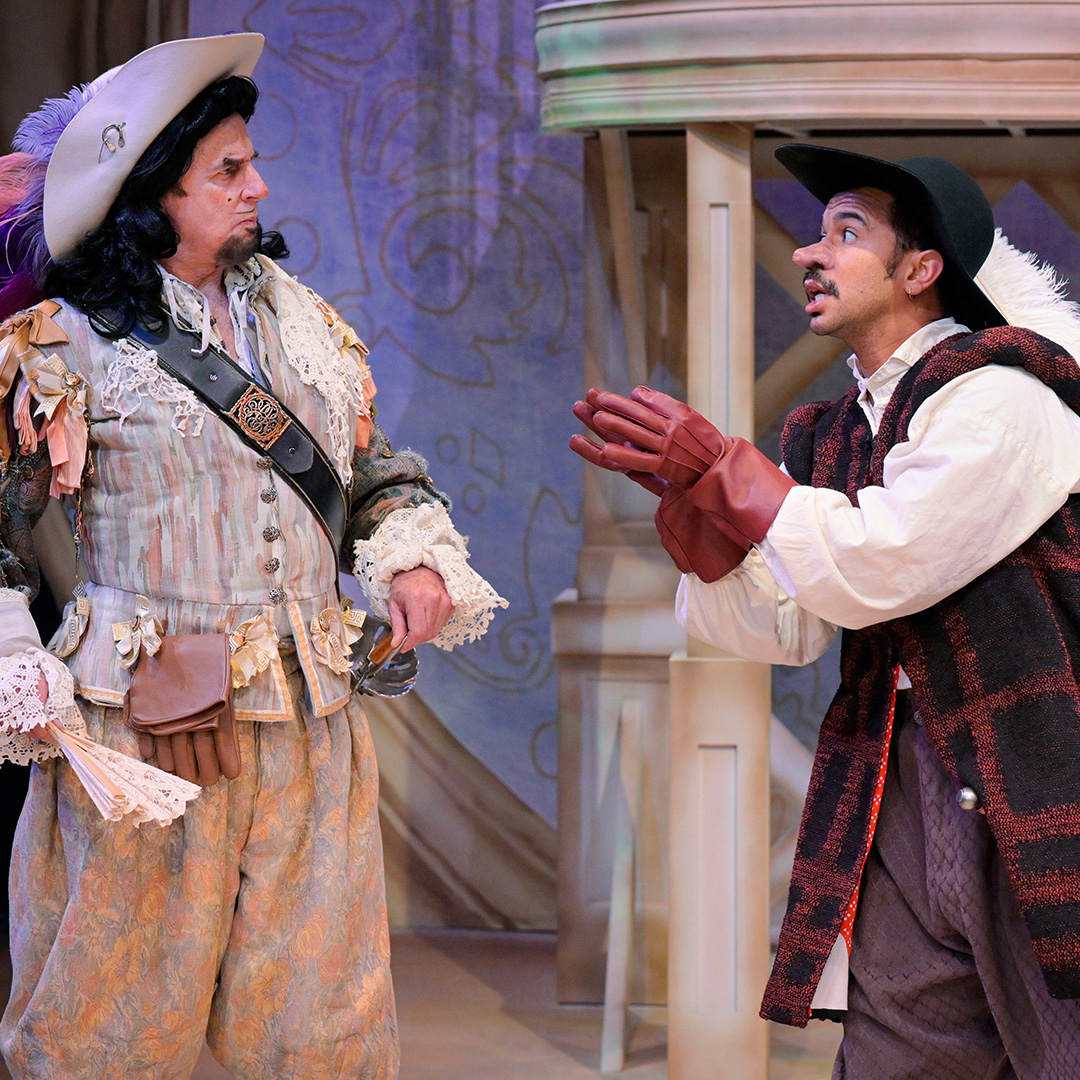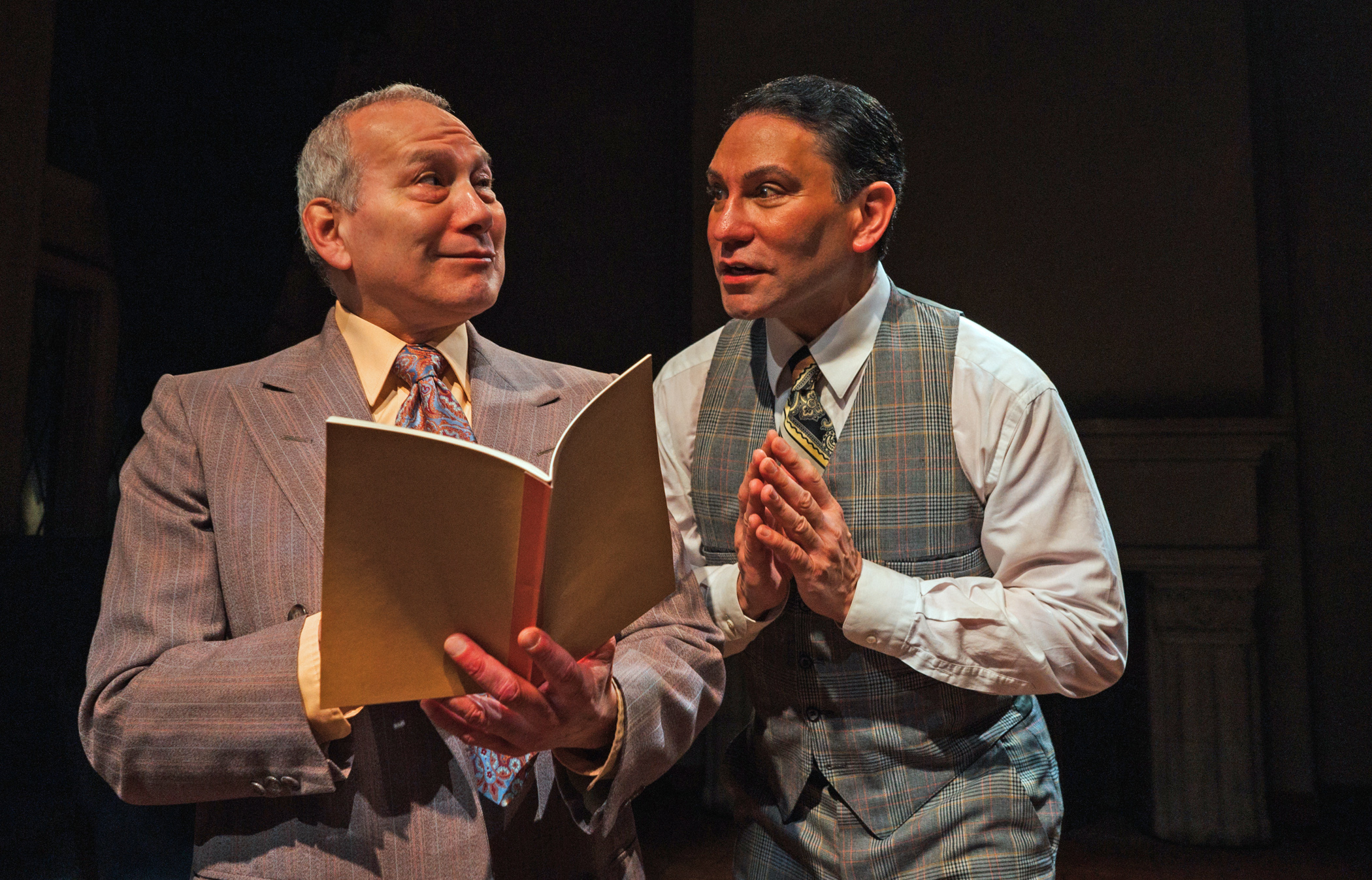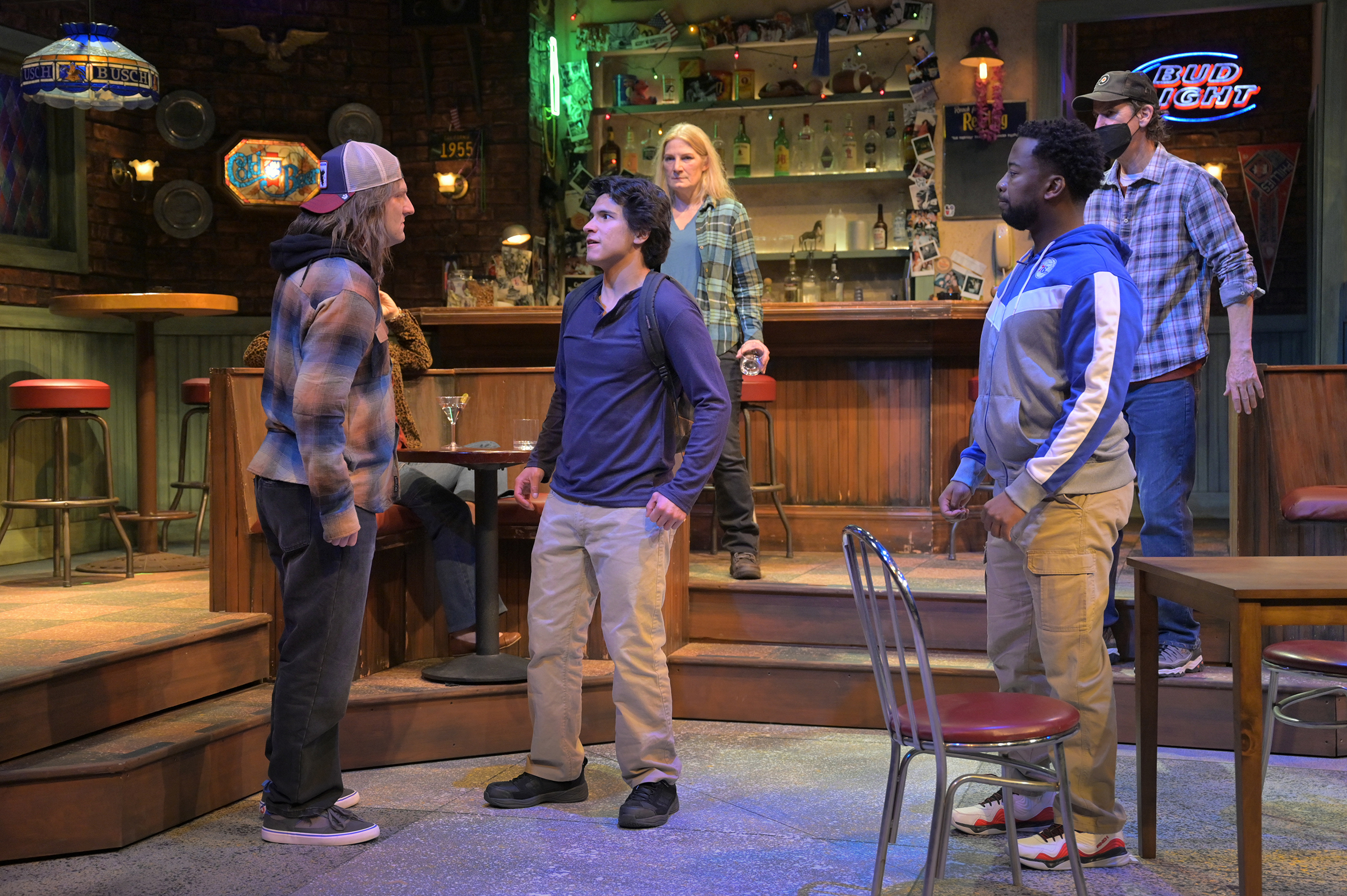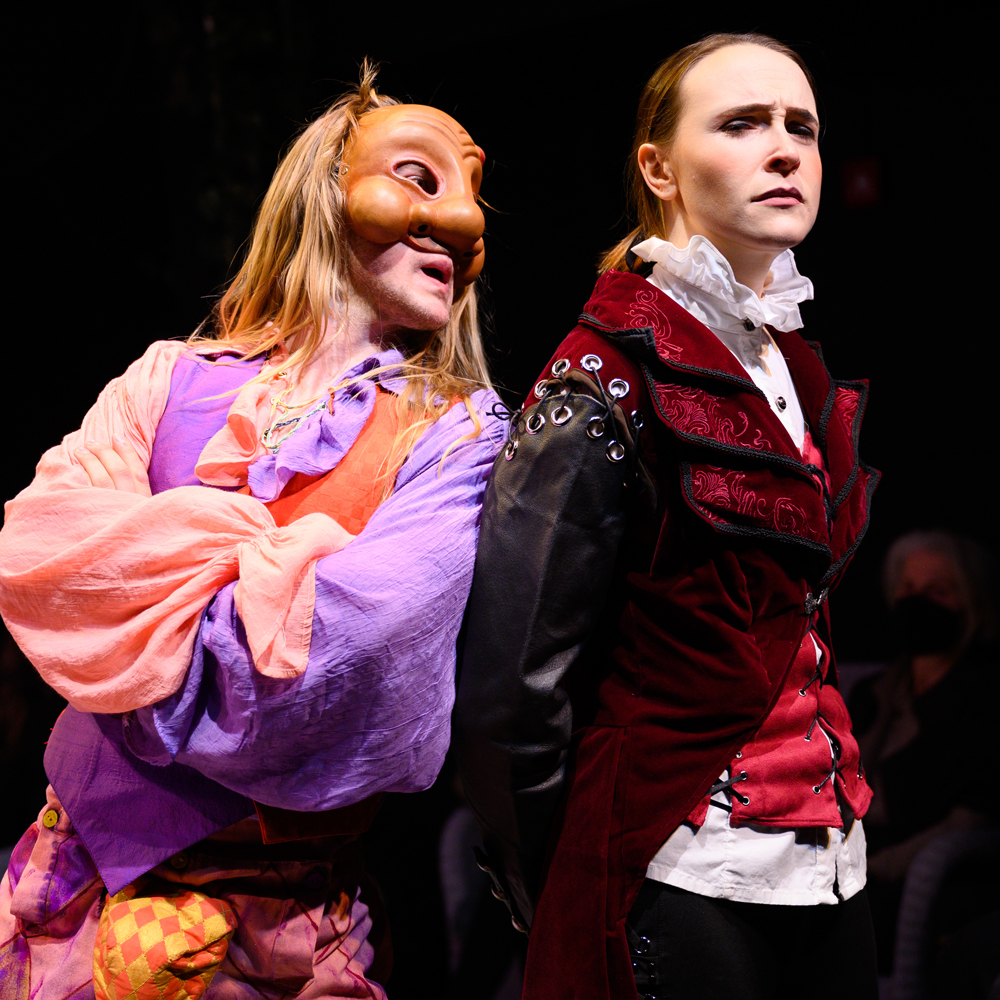 | |
| Aurora Theatre Company production photo |
There are always risks with doing classic plays. With a play like Edmond Rostand's Cyrano de Bergerac, there have been many translations, many interpretations, and many, many stars playing the title role. It's very well known, and audiences have expectations.
On the other hand, some classics don't age well, so there is a temptation to update them, or at least tweak some aspects to make them a little more appealing to modern sensibility. That's the case here, where Aurora Artistic Director Josh Costello decided to do his own adaptation of Rostand's play, called just Cyrano so we know it's not the original.
The Play
You know this story. I'm not going to try to summarize. Suffice it to say that we know about the gallant, poetic soldier and swordsman with the large, unattractive nose who lends his gift for words to the handsome but dull-witted Christian, helping him win the heart of Roxane, the woman they both love.
The problem with this plot line, in modern terms, is that Roxane is usually portrayed as rather shallow and clueless, falling in love with the pretty Christian instead of the witty, devoted Cyrano. Costello's adaptation attempts to give Roxane more agency, a bit more with and perception, so she's less the empty vessel the men compete over and more of a self-guided woman who on some level steers her own life.
The other big change in this adaptation is that Costello has cut the cast down to only five characters: the aforementioned Cyrano, Roxane, and Christian, plus another soldier, Cyrano's friend Le Bret, and Count de Guiche, a nobleman who has power over the Guards in which all the soldiers serve and who also has designs on the lovely Roxane.
The difficulty with that change is that it changes the overall dynamics of the story. Rostand's story is centrally about Cyrano's relationship with the world: he's a brilliant swordsman and wit, beloved by his fellow Guardsmen, but generally shunned and belittled by the rest of society because of his appearance. But cutting down the cast means there is only one character standing in opposition to Cyrano, and that's de Guiche. That's a lot to put on one character, and it causes some problems of its own.
The Production
As usual, Aurora uses a minimal but high-quality set (designed by Carlos Aceves) and maximizes the exposure to the audience on its intimate 3/4 thrust stage. That mostly works well here, though the size of the stage rather limits the swashbuckling that is often a signature of productions of Cyrano de Bergerac. That facilitates the small cast, of course, but the small cast also limits the story. We don't get to see what a polarizing figure Cyrano is, loved by his friends and loathed by his enemies, purely because there aren't enough of either here for us to see that.
A second issue in the performance we saw is that Cyrano's famed nose just wasn't very large--not nearly as long as the one in the photo above. Although Cyrano (William Thomas Hodgson) wore a prosthetic nose, it was more bulbous and not so long. That might have been workable, but for the fact that this nose wasn't really noticeably larger than the unaugmented noses of Christian (Steven Flores) or de Guiche (Ron Campbell, pictured above with Hodgson). If Cyrano's nose isn't absurdly large, pretty much the entire plot just fizzles.
My third issue is Count de Guiche. One of the key opening scenes in Rostand's play has Cyrano taunted by a drunken, witless fool, and Cyrano challenges him with his sword, then composes an extemporaneous ballad while they fight, ending with a touch. It's brilliant theater, and a classic scene. Unfortunately, the only foil available to Cyrano in this adaptation is de Guiche, who gets rendered as clownishly foolish, which is not a stance that holds up in his later role, trying to seduce Roxane or commanding the troops in battle.
And finally, and most critically, by upgrading Roxane to be witty and self-aware, this adaptation kneecaps the tragic ending of the story. Rostand's concluding scene ends with Roxane suddenly realizing, years later, that it was Cyrano all along who loved her and wrote all of Christian's beautiful love letters. In this version, when she tells us that she knew it all along, we no longer have a tragedy (except for Cyrano, I guess, who has been strung along for no reason after Christian's death), but really just a bad romantic comedy or something, where the lovers not only never get together, but fail to do so for really bad reasons.
The Bottom Line
I really wanted to like this play, because I love Cyrano de Bergerac and its brilliant language and wit. I appreciate the effort to make the story a bit kinder to its one real female character, but sadly, this attempt to do that makes the story both uninteresting and dull. Where we used to have only Cyrano's pride standing in the way of his love for Roxane, now we have Roxane apparently just holding him off, even though she knows he loves her. And instead of de Guiche being a worthy foe, he's been turned into a witless clown, so Cyrano has no capable foil in the story.
I feel like this adaptation wastes the talents of some quite good performers. Adrian Roberts is quite wonderful as Le Bret, and Campbell does a lot with his role as de Guiche, in spite of the incoherence of the script in that regard. Leontyne Mbele-Mbong is a fine Roxane, if only her role made sense.
This feels like an adaptation that tried to do too many things, and didn't quite manage to make any of them work. I suspect that if they had workshopped this adaptation instead of sending it straight to their main stage, they would have discovered some of these failings soon enough to deal with them. Instead, they have a remarkably unappealing version of Cyrano.
You can still catch the play at Aurora through May 7th, if that appeals to you. I wouldn't bother.





